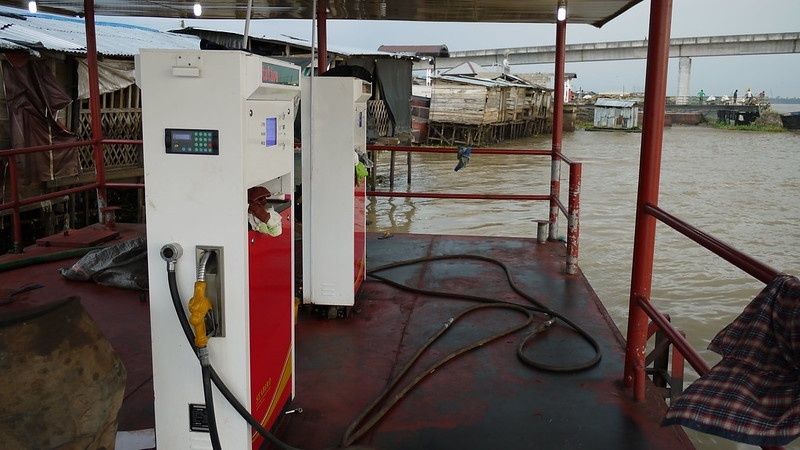5 October, 2023Nigerian unions have suspended an indefinite national strike to protest the removal of a fuel subsidy after an agreement was reached with the Federal Government of Nigeria through social dialogue on 2 October.
The government removed the subsidy in January as part of economic reforms it is implementing, and argues that it is making savings. But the unions are disputing this saying the savings cannot be made at the expense of the workers.
The removal of the subsidy on premium motor spirit or petrol triggered price increases and caused a cost-of-living crisis among the workers who are paying more in transport fares to go to work. Prices of other goods and services also went up because of the increased transportation cost as transporters raised prices.
According to the memorandum of understanding reached between the government, the Nigeria Labour Congress, and the Trade Union Congress, the strike which was supposed to begin on 3 October was suspended for 30 days to allow for social dialogue. Further, the Federal Government of Nigeria agreed to pay government workers a wage increase of 35,000 Naira (US$46), to set up a minimum wage committee within one month, and to remove valued added tax from diesel for six months.
The government also committed to improve public transport through the provision of 100 billion Naira (US$132 million) for high-capacity buses that will run on compressed natural gas (CNG). CNG buses have lower running cost than those that use petrol or diesel. The government also agreed to pay 25,000 Naira (US$20) to 15 million households and pensioners and provide tax incentives to the private sector and the public.
John Adaji, IndustriALL Sub Saharan Africa regional co-chairperson and president of the National Union of Textile Garment and Tailoring Workers of Nigeria, said:
“The unions welcome the measures to meet the workers’ demands on living wages to cushion them against the removal of the subsidy. As unions we will continue to campaign for pro-worker economic policy reforms that benefit the workers and improves the livelihoods of their families.”
“Austerity measures must not sacrifice workers’ wages and ignore the realities that workers must be paid living wages to enable them to meet their basic needs,”
said Paule France Ndessomin, IndustriALL regional secretary for Sub Saharan Africa.
Photo: Floating petrol and diesel filling station in the Niger Delta, Stakeholder Democracy
